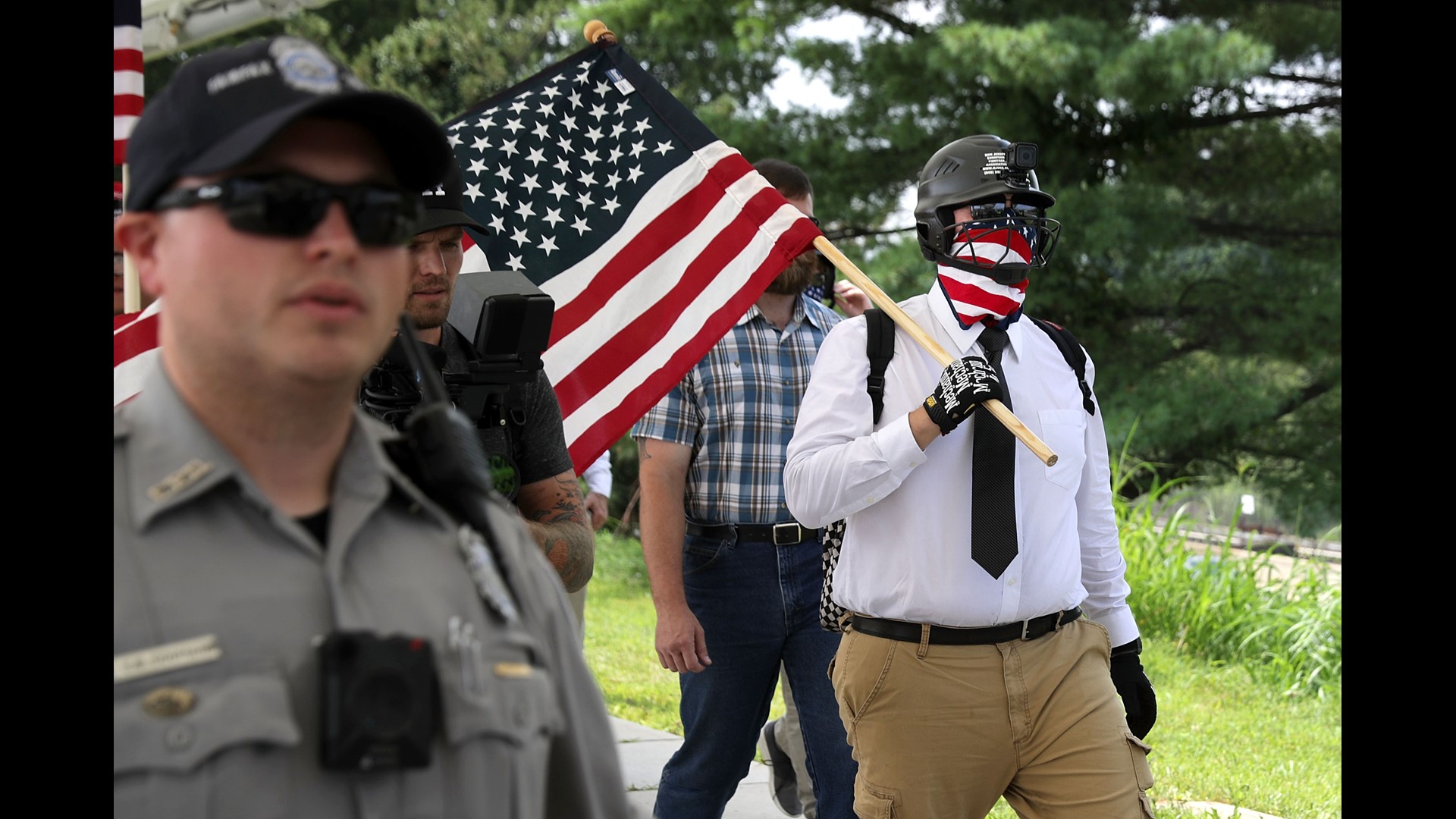
There's going to be accountability for the people who did this and we are so grateful for everybody for supporting us and hanging in with our plaintiffs." Plaintiffs' attorney: "We feel that justice was served"Īttorney for the plaintiffs Karen Dunn celebrated the damages awarded by the verdict soon after it was announced, telling reporters outside the federal courthouse, "We feel that justice was served today. James Fields was also ordered to pay more than $1.5 million to plaintiffs for physical and emotional injuries they suffered due to his car attack, on top of $12 million in punitive damages, and the $500,000 fine from the conspiracy count. To this day, Romero testified that she suffers from panic attacks, flashbacks and post-traumatic stress disorder.

Romero suffered a fractured skull after James Fields rammed his car into her and other counter-protesters. Willis testified about the chemical irritants and racist "monkey noises" he endured as tiki torch-carrying white nationalists marched around the University of Virginia, surrounding the young Black man and college student for hours. Plaintiffs Natalie Romero and Devin Willis received $500,000 total in additional compensatory damages after it was found that five defendants "engaged in racial, religious or ethnic harassment or violence." The defendants were also fined $1 million more in punitive damages. Fields was included in the 12 defendants ordered to pay $500,000. $26 million in damagesĭespite the deadlock on federal charges, the jury awarded plaintiffs a large sum - $26 million in compensatory and punitive damages total from the defendants.įor engaging in a "conspiracy to harm, harass or intimidate," the defendants were ordered to pay $11 million total a dozen defendants were fined $500,000 apiece, while five white supremacist organizations were assessed $1 million in punitive damages. They're seeking to implicate organizers - allegedly including Rudy Giuliani, members of the Proud Boys and even former President Donald Trump - and others who have been accused of inspiring violence, including racially motivated violence, ahead of the riot. Some Capitol Police officers and members of Congress are relying on the very same statute to bring their own civil lawsuits over the January 6 attack on the U.S. The post-Civil War era statute - one of the few laws that enables plaintiffs to accuse fellow citizens, rather than the government, of depriving them of their civil rights - has been employed in civil litigation more than once this year. We do not believe this will change." Clerk reads partial verdict in "Unite the Right" civil case, Charlottesville, VA, Nov. After reviewing final jury instructions and decided claims 1 and 2 at length, we are deadlocked. Kessler.Īccording to the note from the jury, "We have unanimously decided on claims 3,4,5,6. Those two federal conspiracy charges are outlined in the "Ku Klux Klan Act," an 1871 statute designed to protect African Americans from the Ku Klux Klan and other hate groups, but used in modern day for the first time in Sines v. The jury sent a note to the court indicating they were deadlocked and could not reach a decision on the first two claims - whether defendants engaged in a conspiracy to commit racial violence, and whether they had knowledge of such a conspiracy, but failed to prevent it.

The proposal came amid efforts to remove similar Confederate public monuments across the country.Nine plaintiffs - made up of current and former Charlottesville residents - were seeking in this civil case to prove that their constitutional rights were violated when the defendants entered into a conspiracy of racially motivated violence, and they were asking for compensatory and punitive damages for physical and emotional injuries. Kessler was an organizer of last year’s “Unite the Right” march, which saw neo-Nazi and white supremacist groups and their supporters converge in Charlottesville, where the city council was considering removing a statue of Confederate General Robert E. An event had initially been planned for Charlottesville, but was refused over public safety concerns, ABC-affiliate station WSET reported. Kessler’s application estimated that 400 would attend the proposed rally in Washington on Aug. The application was approved, but a permit for the event has not yet been issued, according to National Park Service spokesperson Mike Litterst.

12 last year, has petitioned for a two-day “white civil rights rally” on the first anniversary of the march, Reuters reports. Jason Kessler, who helped organize the “Unite the Right” rally in Charlottesville on Aug. The organizer of a far-right rally that turned deadly in Charlottesville, Virginia last year is planning to hold another event near the White House in Washington, D.C., according to officials.


 0 kommentar(er)
0 kommentar(er)
